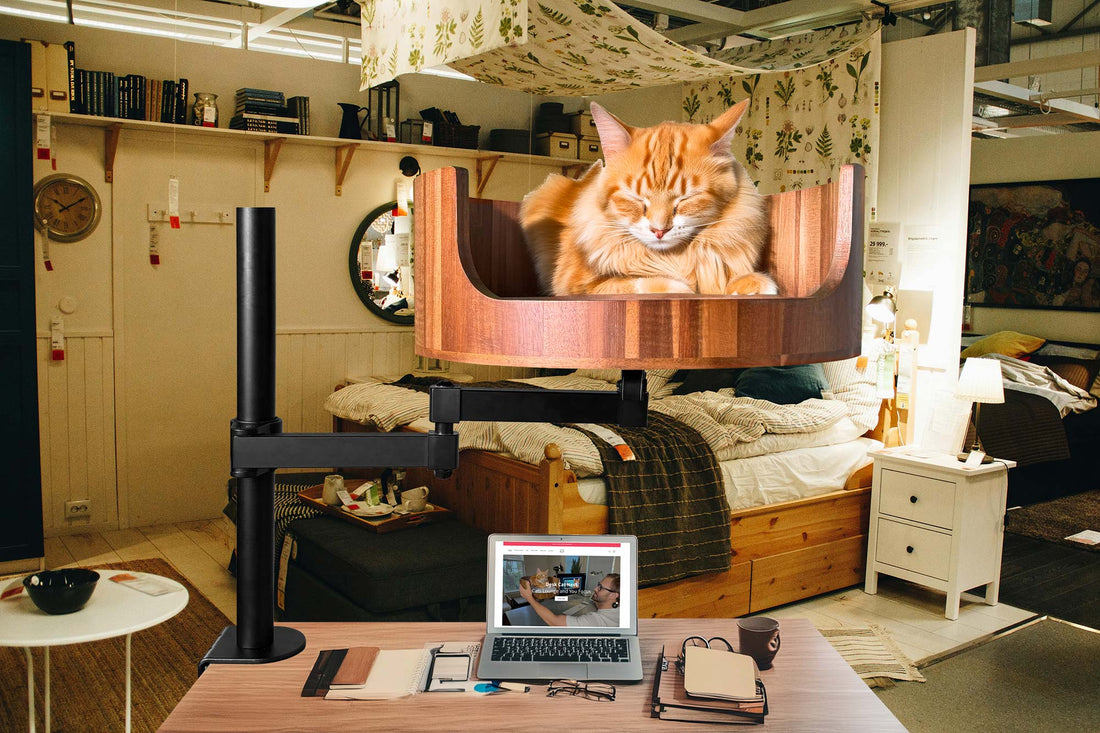
Why My Cat Doesn't Want to Eat: Common Reasons Explained
Share
Is your feline friend suddenly turning their nose up at mealtime? It can be puzzling and concerning when your cat refuses to eat, leaving you wondering what could be causing their lack of appetite. In this article, we will explore some common reasons why your cat might not want to eat, shedding light on potential underlying issues that may be at play.
From stress and illness to dietary preferences and dental problems, there are a variety of factors that could be contributing to your cat's reluctance to eat. By understanding these possible reasons, you can better assess your cat's situation and take appropriate action to ensure their health and well-being. So, if you're scratching your head wondering why your cat is turning their nose up at mealtime, read on to discover some common culprits behind their diminished appetite.
1. Stress, illness, and changes in environment can all contribute to a cat's decreased appetite.
2. It is important to consult with a veterinarian if a cat's eating habits change suddenly or persistently.
3. Dental issues, food preferences, and unfamiliar surroundings can also impact a cat's desire to eat.
4. Providing a comfortable and quiet eating area can help encourage a cat to eat regularly.
5. Monitoring a cat's weight, behavior, and food intake can help detect any potential issues early on.
Stress and Anxiety
Stress and anxiety can lead to a loss of appetite in cats. Changes in the environment, such as moving to a new home, the addition of a new pet, or loud noises can cause stress to your cat. Cats are creatures of habit and can become stressed when their routines are disrupted. It is important to identify the source of stress and try to minimize it to help your cat regain its appetite. Providing a safe and quiet space, using pheromone diffusers, or engaging your cat in interactive play can help reduce stress and anxiety.
Dental Issues
Dental issues are a common reason why a cat may not want to eat. Cats can suffer from dental problems such as gum disease, tooth decay, or broken teeth, which can cause pain and discomfort while eating. It is essential to have your cat's teeth checked regularly by a veterinarian to identify any dental issues early on. Providing your cat with dental treats, regular dental cleanings, or a specialized dental diet can help maintain your cat's oral health and appetite.
Medical Conditions
There are various medical conditions that can cause a cat to lose its appetite. Conditions such as kidney disease, diabetes, gastrointestinal issues, or infections can affect a cat's desire to eat. It is crucial to consult with a veterinarian to rule out any underlying medical conditions if your cat is experiencing a loss of appetite. Diagnostic tests, such as blood work, urine analysis, or imaging studies, may be necessary to determine the cause of your cat's decreased appetite. Treatment options will vary depending on the specific medical condition diagnosed.
Dietary Changes
Changes in diet can also affect a cat's appetite. Cats are known to be picky eaters and may refuse to eat a new type of food or a different brand. It is essential to make gradual dietary changes to allow your cat to adjust to a new diet. Ensure that the food you are offering is fresh, properly stored, and served at the right temperature. Additionally, take into consideration your cat's preferences and nutritional needs when selecting a diet to encourage your cat to eat.
Frequently Asked Questions
Why is my cat not eating?
There could be several reasons why your cat doesn't want to eat. It could be due to stress, illness, dental problems, food preferences, or even a change in their environment. It's important to consult with your veterinarian to rule out any underlying health issues.
How can the Desk Cat Nest help my cat eat?
The Desk Cat Nest provides a cozy and secure space for your cat to eat without distractions. Cats are known to feel stressed or vulnerable when they eat in open areas, so having a secluded spot like the Desk Cat Nest can help them feel more comfortable and relaxed while eating.
Is the Desk Cat Nest easy to clean?
Yes, the Desk Cat Nest is designed with removable and washable covers for easy cleaning. Simply unzip the covers and wash them according to the instructions provided. This ensures that your cat's feeding area remains clean and hygienic.
Will my cat like the Desk Cat Nest?
Every cat is unique, so it's hard to predict whether your cat will like the Desk Cat Nest. However, many cats enjoy the privacy and security that the nest provides, making meal times a more pleasant experience. You can introduce your cat to the Desk Cat Nest gradually and observe their behavior to see if they take a liking to it.
Can the Desk Cat Nest help with picky eaters?
The Desk Cat Nest can potentially help with picky eaters by providing a designated and quiet space for them to eat without distractions. Some cats may feel more inclined to eat in a secure and cozy environment, which can encourage them to try new foods or eat more consistently.
In conclusion, if your cat is refusing to eat, it could be due to stress or discomfort in their feeding area. Introducing a Desk Cat Bed can provide a cozy and secure space for your feline friend to relax and enjoy their meals. This multifunctional accessory not only creates a designated dining spot but also doubles as a comfortable resting place. By investing in a Desk Cat Bed, you can help alleviate your cat's anxiety and promote a healthier eating routine. Give your cat the gift of a peaceful dining experience with this valuable and beneficial product.


















































